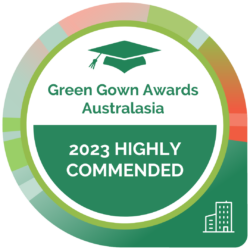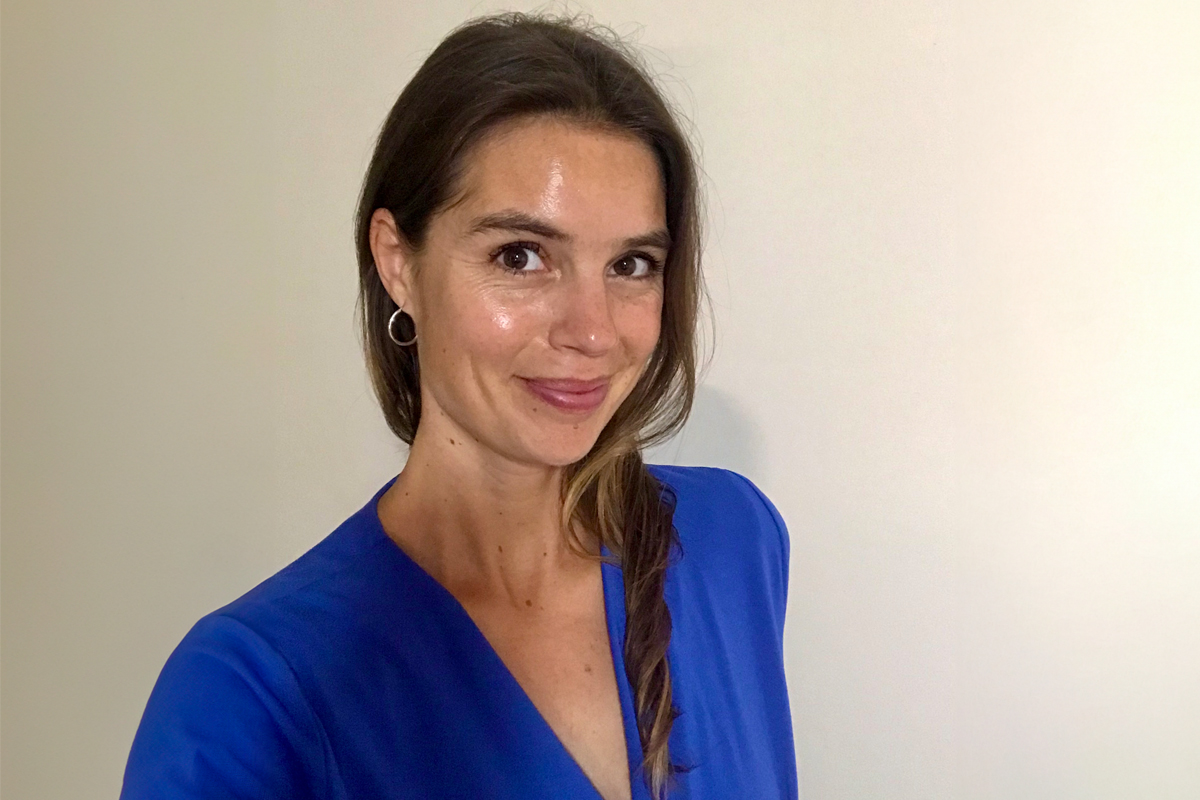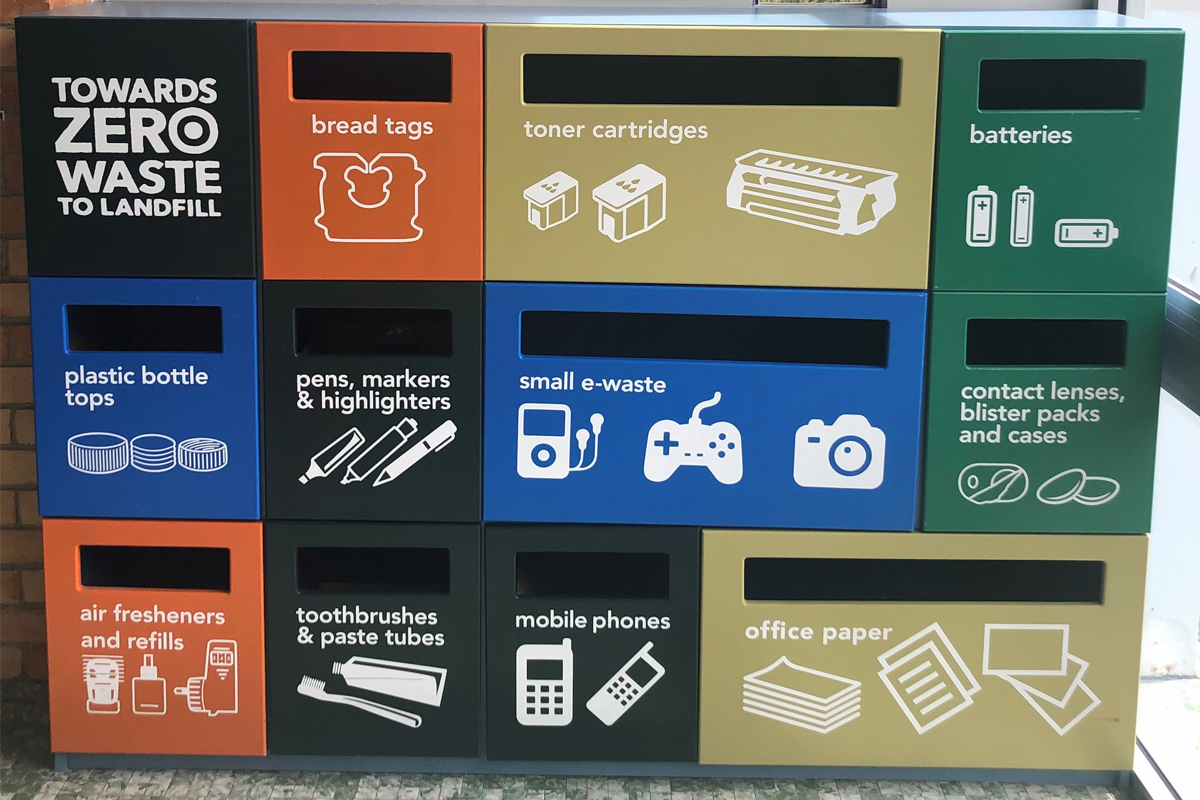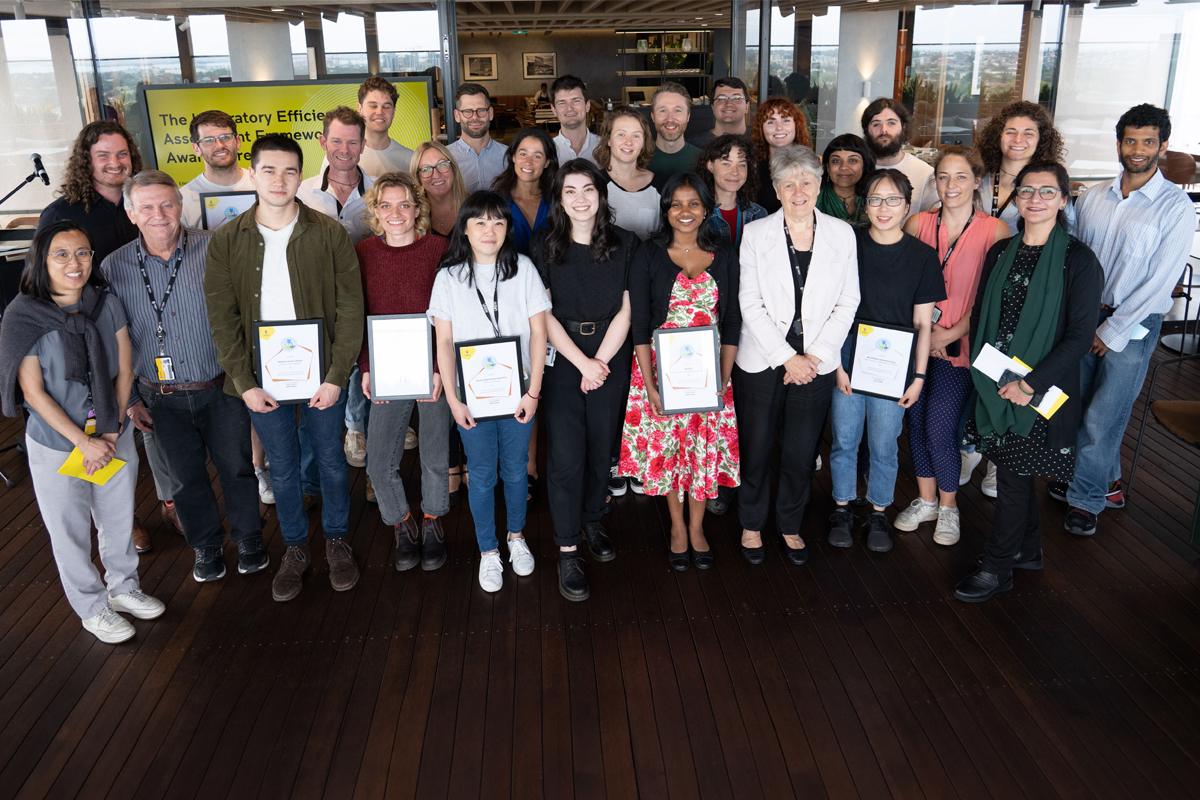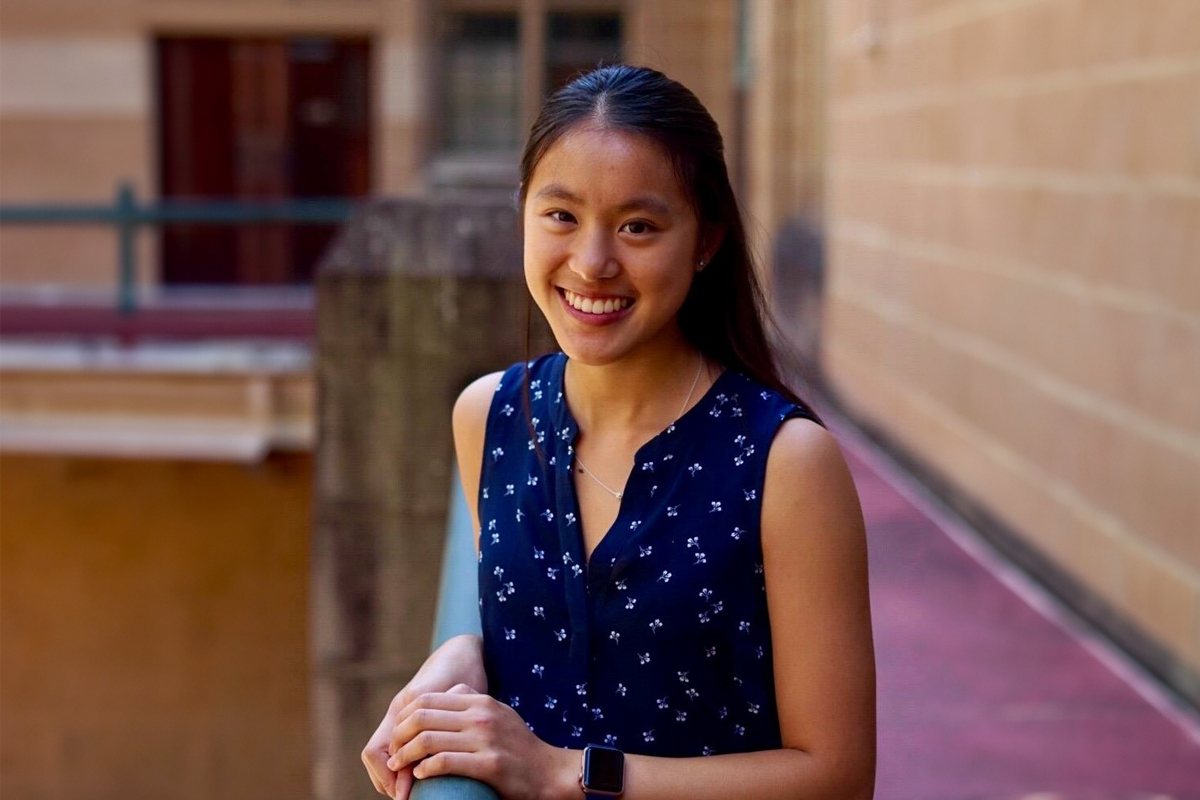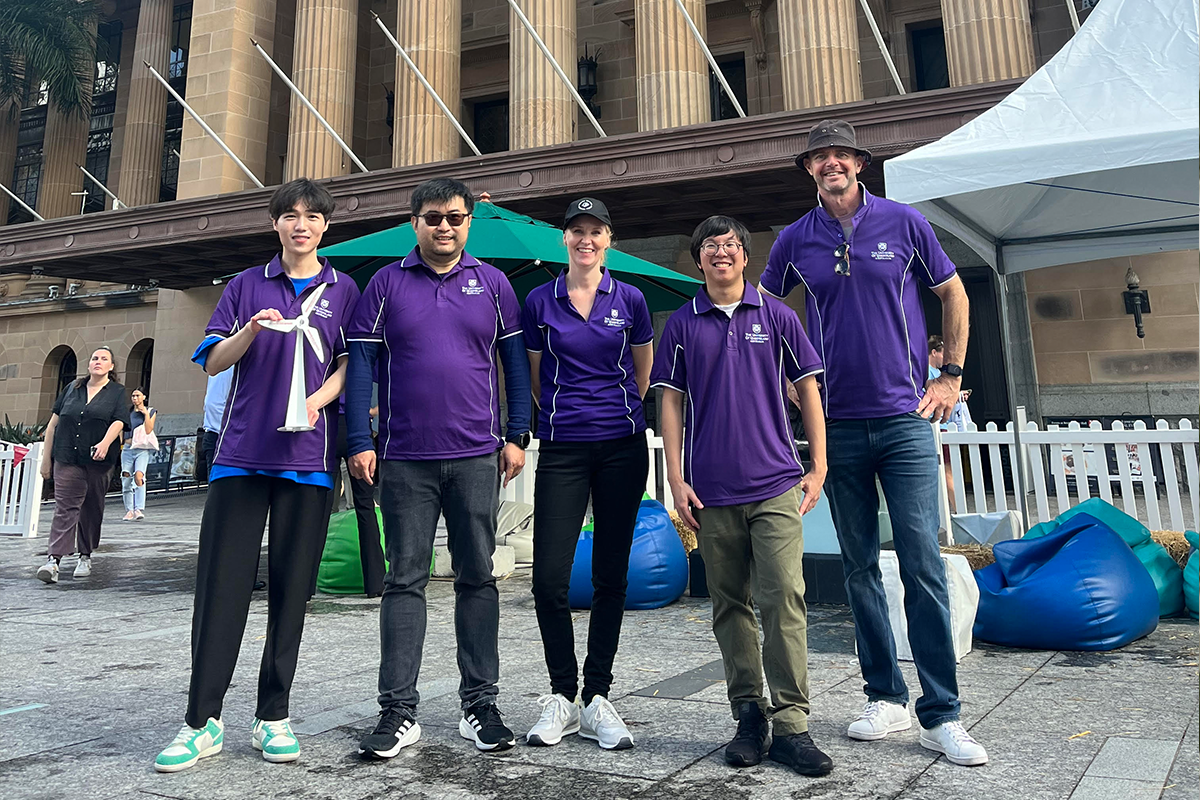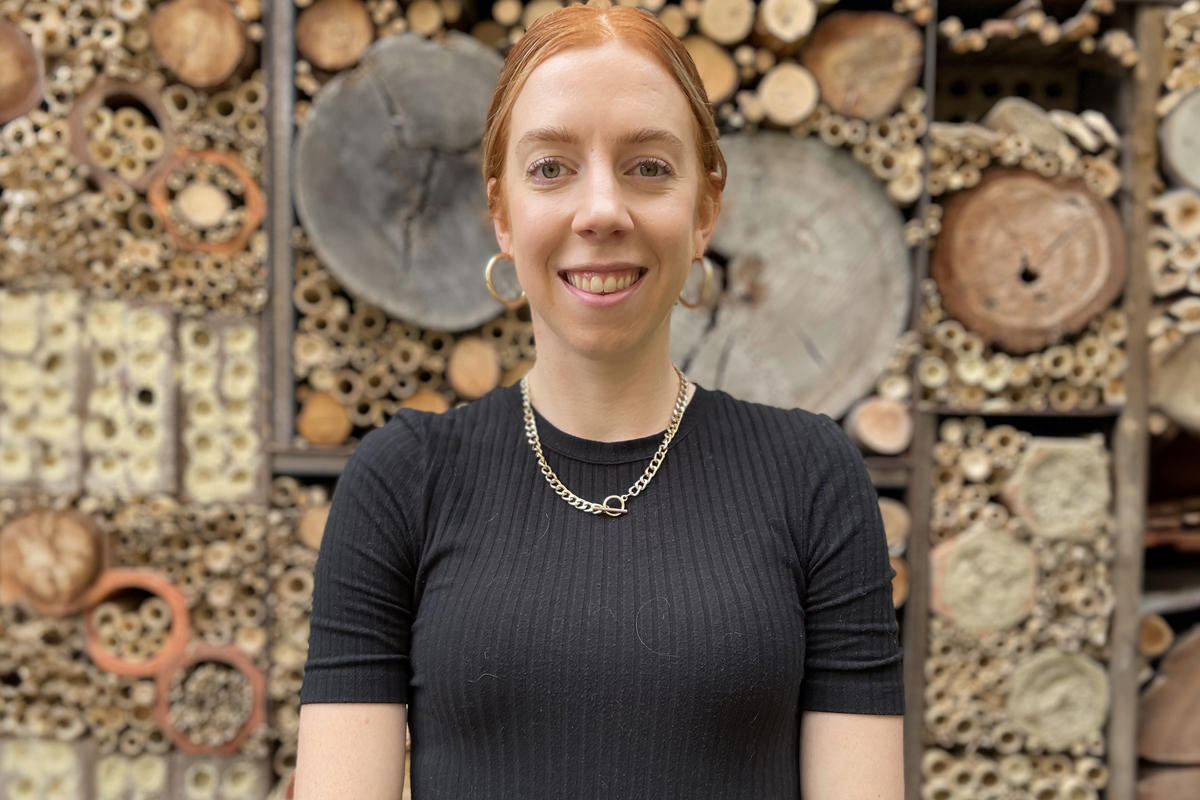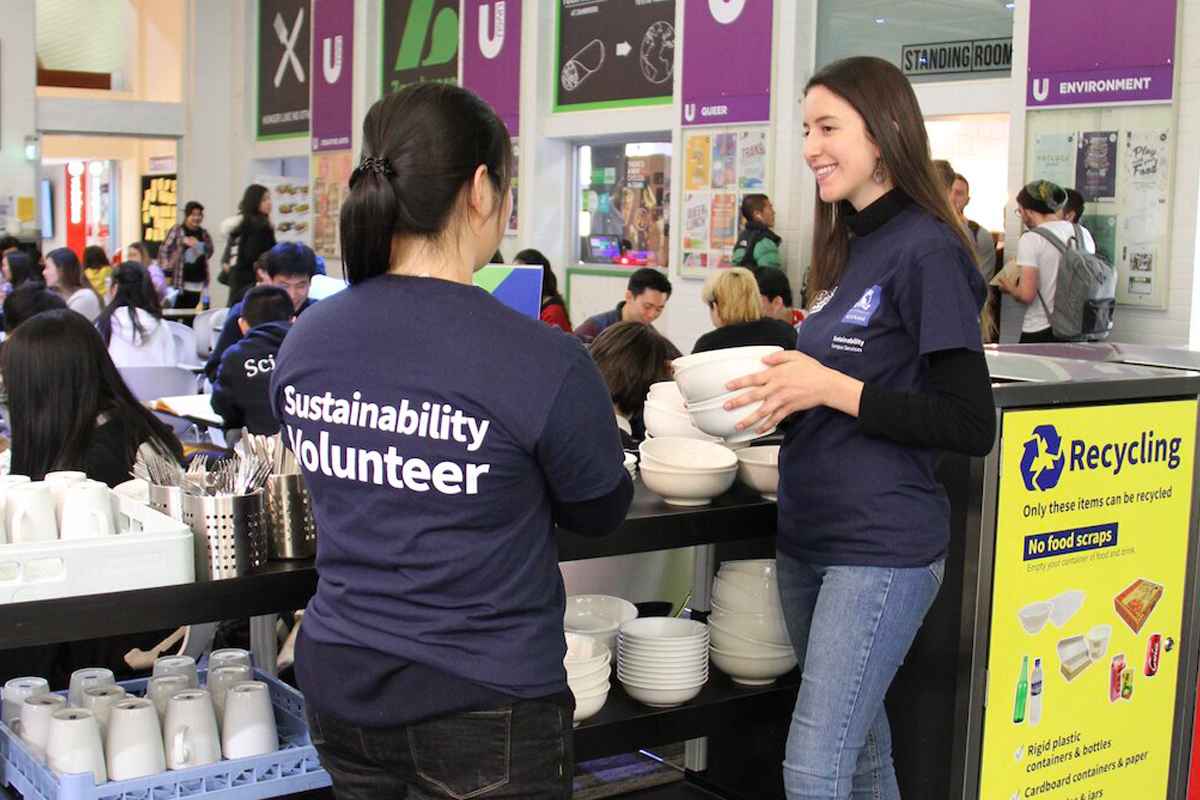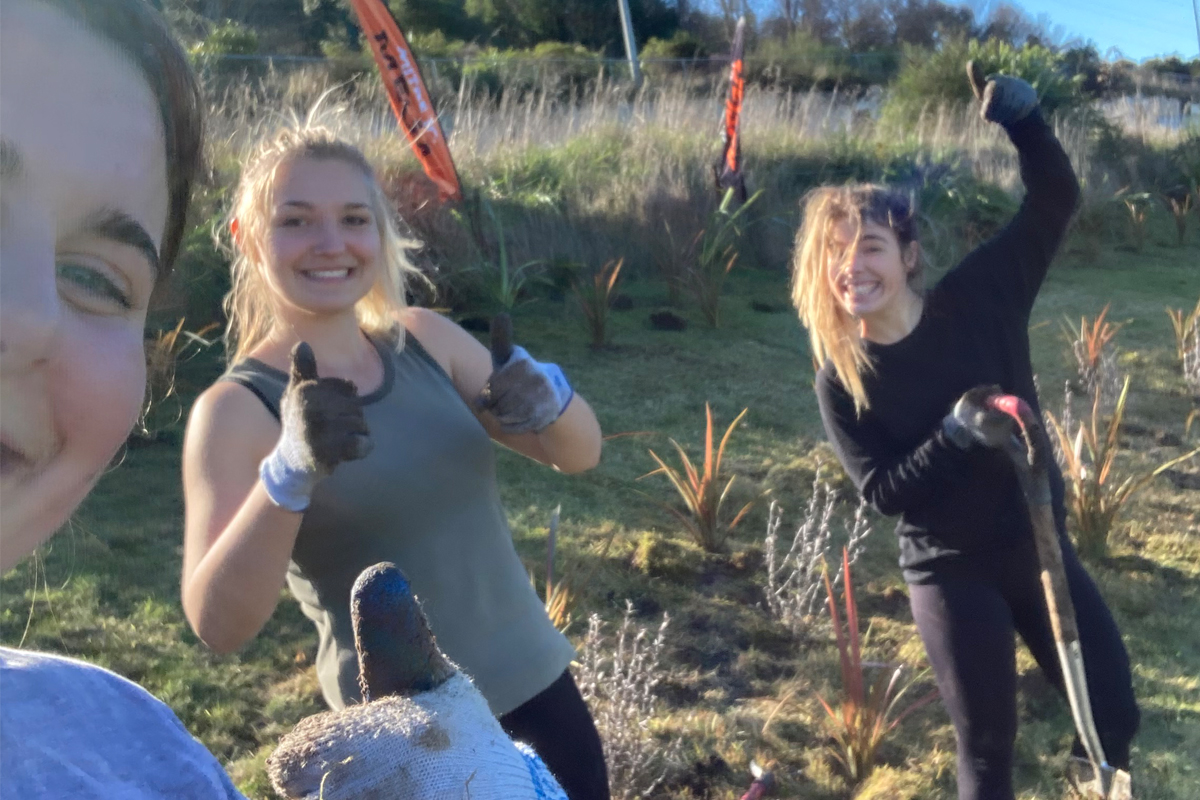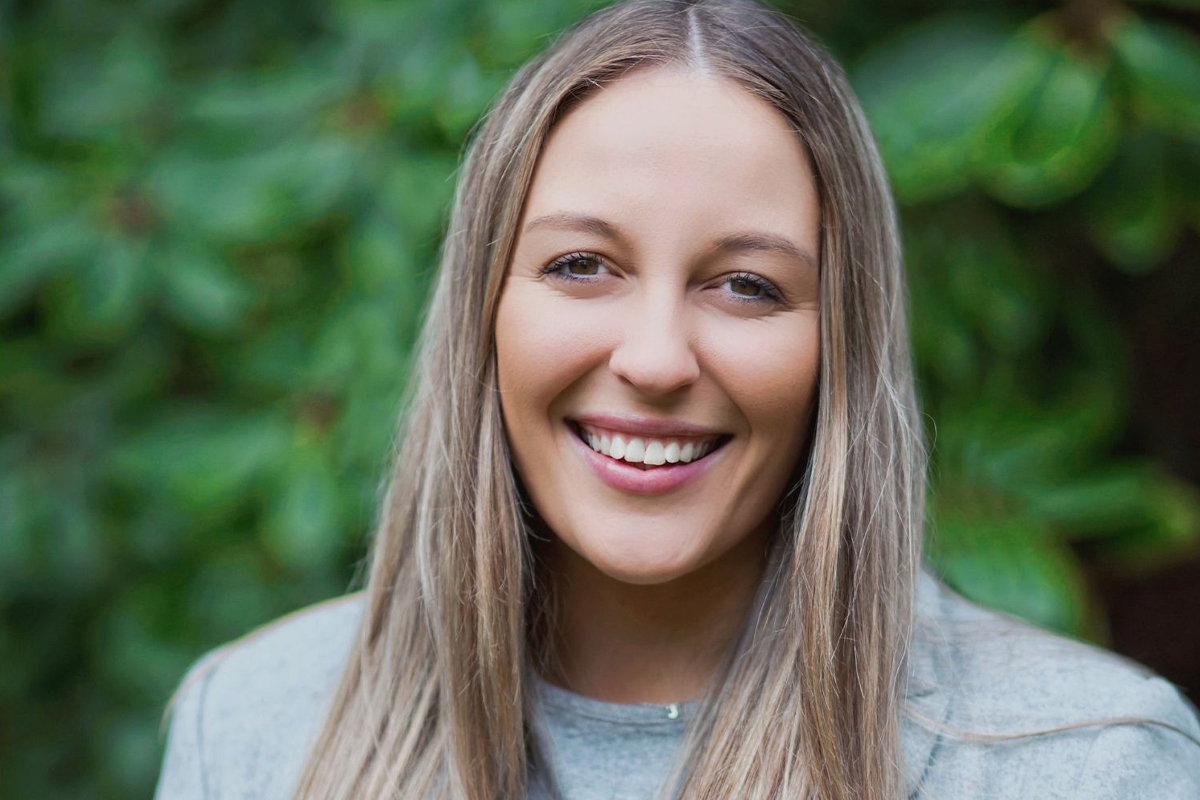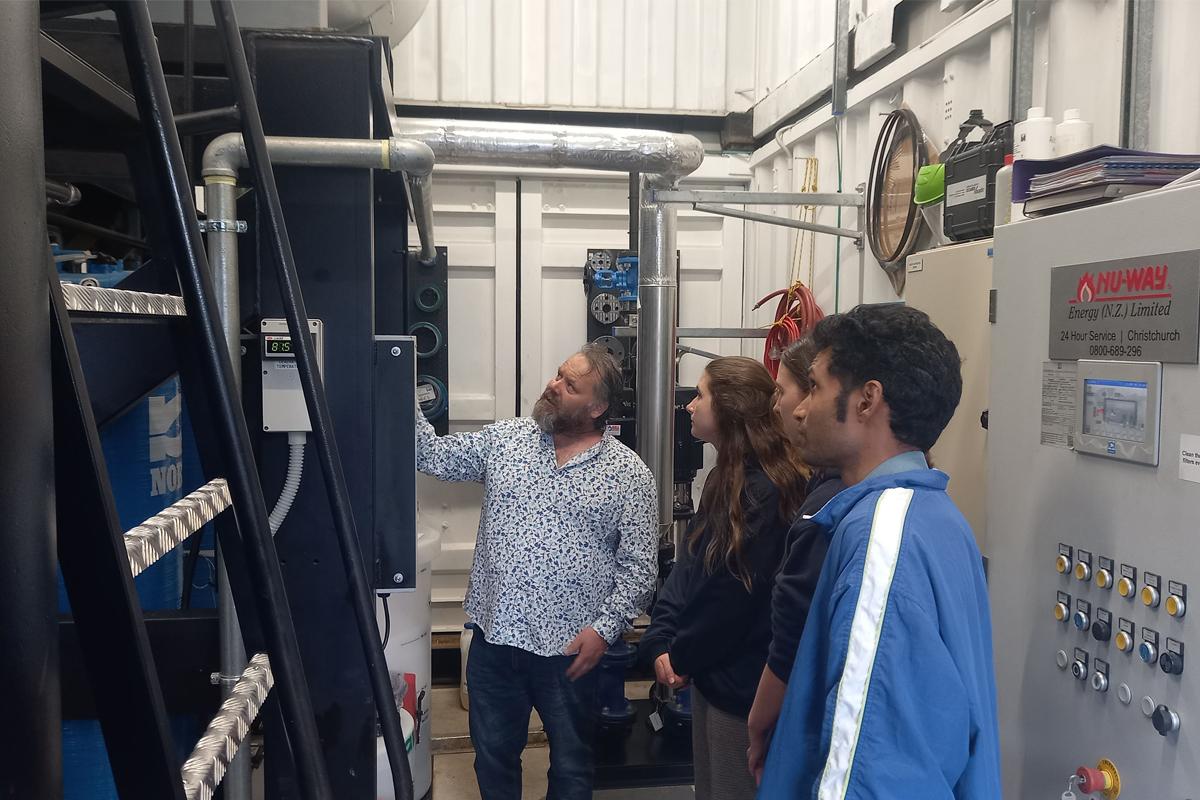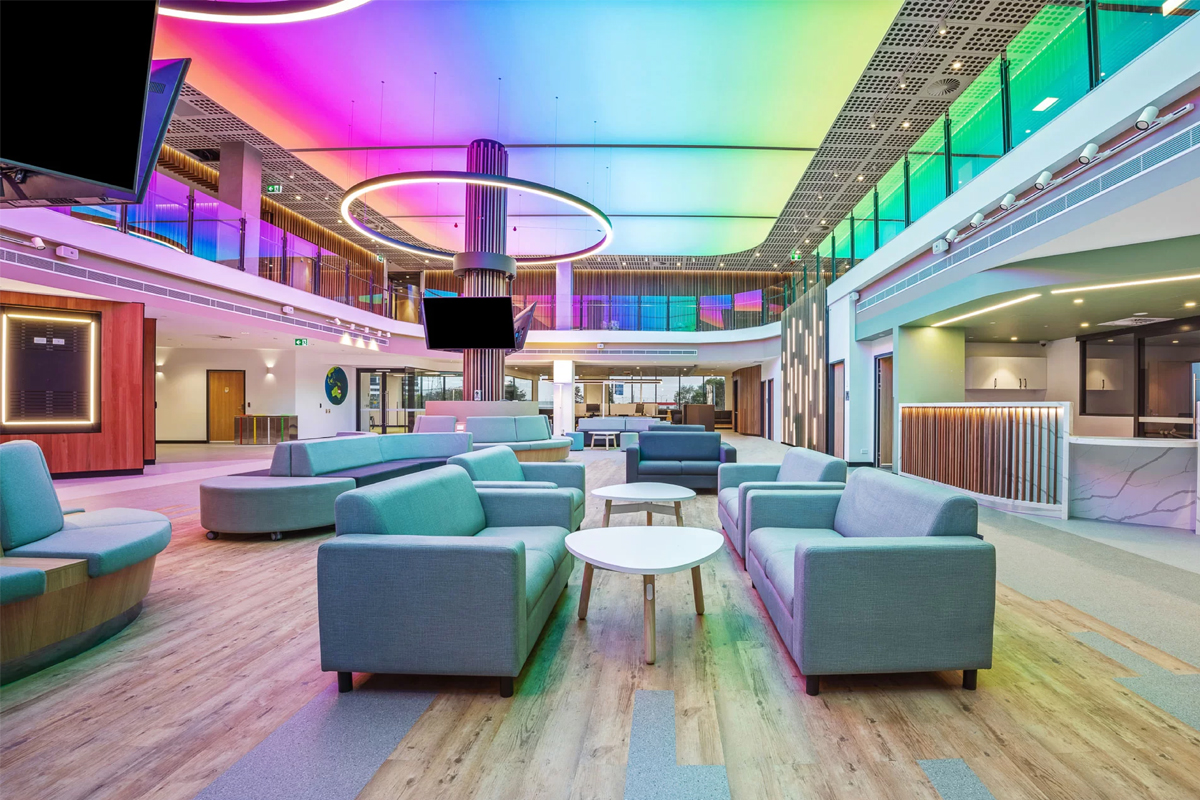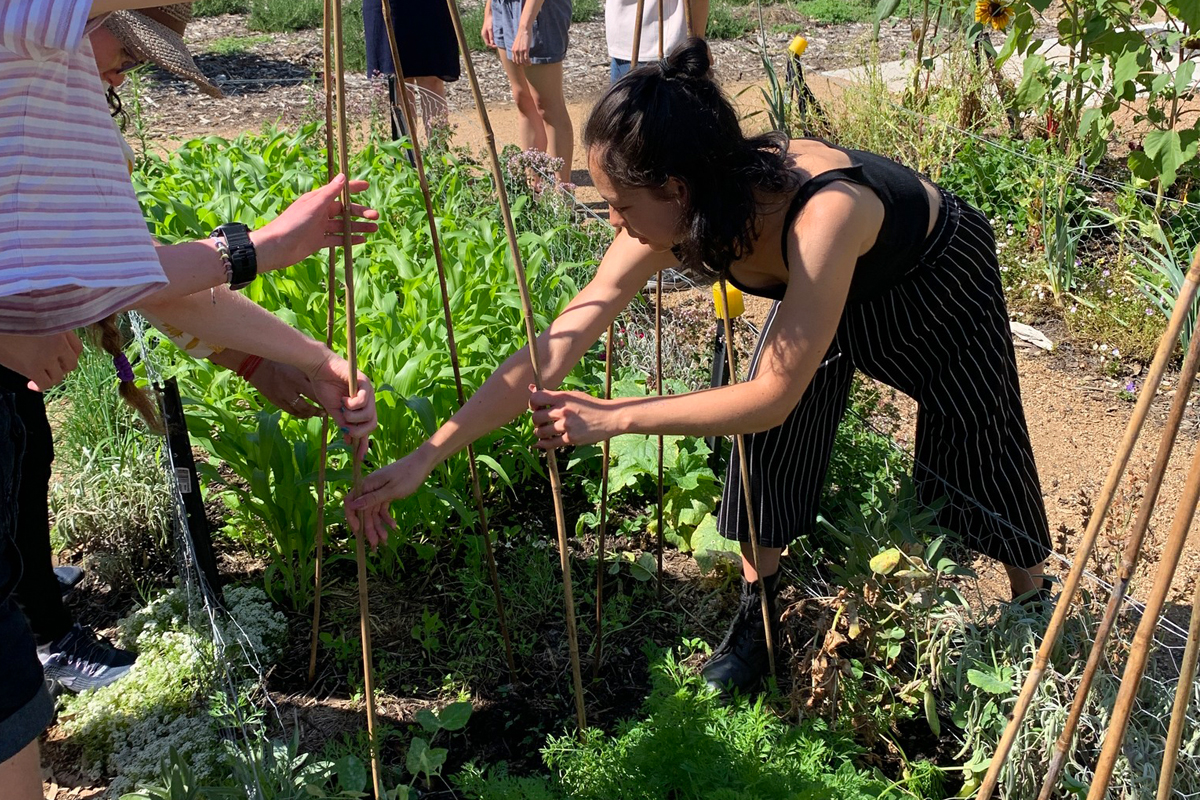Sustainability Champion – Student/Winners category
I grew up in a society where systemic economic, political, and social inequalities and subsequent poverty and suffering were commonplace. As a young child I wondered why did suffering exist? And why did some people suffer so much more than others? One day when I was five years old, I was walking past a building site and saw a young girl around my age carrying bricks on her head. This was not an unusual sight for me, but that day the stark disparity between us hit me. Our lives were so different. Why didn’t she go to school? Where did she sleep at night? What did she do for fun? That day I began a journey that still continues today, to understand why suffering exists, and why it is so difficult to eliminate poverty and injustice Experiences such as this, combined with my study, work and advocacy have contributed to the core belief that neither societal advancement, nor one’s enjoyment of life should come at the expense of any other person’s safety or wellbeing.
At sixteen, I uprooted my life in South Asia and moved to Australia. Over the next few years, I worked multiple jobs while balancing study, culture shock and isolation. I quickly realised how people saw me, a ‘migrant from an underdeveloped country’, regardless of my education, potential or capacity. I experienced exclusion, racism, discrimination, exploitation, and underpayment of wages. The fear of impacting my visa and consequently impacting my future prevented me from seeking help, affecting my mental and physical health. I noticed this was a common experience in migrant, refugee and asylum seeker communities. These experiences shaped my overarching goal – to contribute to a world where all people have the freedom to live and flourishing lives. By bringing visibility to those who have been made invisible by global supply chains, I aim to bring human connection back into the framework of business and development, helping to address inequality and injustice.
In 2015, I finally had the opportunity to study a Bachelor of Business (Economics) at James Cook University (JCU). This degree helped me to understand the systemic context behind inequality and injustice, and to design more effective solutions. During my studies, I volunteered to run an English language class for adults from migrant, refugee, and asylum seeker backgrounds. I was part of a group that started First Hike Project in Brisbane, an organisation that takes young people from these communities on hiking and camping trips to help them connect with nature in their new home. During my Bachelors, partnering with JCU Sustainability, I created a project outside the typical scope of my degree to challenge university procurement to address the slavery and exploitation of people in their supply chains. This project made a case for ethical procurement at JCU and initiated the creation of a Social Procurement Framework, still used today. For this, I was awarded the James Cook’s Student Sustainability award. My resulting 2016 TEDx talk on ethical clothing aimed to educate a broader audience about slavery and exploitation, and bring visibility to the people being exploited , has been watched over 56,000 times globally.
In 2021, I began studying the Diploma of Sustainable Living (DSL) at the University of Tasmania (UTAS). I found that my Business/Economics degree did not provide sufficient explanation on the issue of slavery and exploitation, which exists at the intersection of many other issues – poverty, climate injustice, migration, gender inequality, growth and development, discrimination, colonialism, unequal distribution of wages and the division of labour. The DSL provided an opportunity to understand the issue through a more holistic sustainability lens. At UTAS, through a Sustainability Integration Program for Students (SIPS) internship and fellowship, I have been undertaking a project that identifies the modern slavery risk in the University’s clothing & apparel supply chain and evaluates the effectiveness of Fairtrade certification to reduce this risk and contribute to other sustainability goals such as gender equity, biodiversity protection, reduced chemical run-off into waterways, health and wellbeing of farmers. I presented the project findings to the University Marketing, Procurement and Sustainability teams, the Students for Sustainability working group (which reports to the Sustainability Committee), academic staff and the student union (TUSA). This report and presentation has led the University to ask their supplier to stock Fairtrade certified products. This is an important milestone as it means Fairtrade products are now available to all the clients in Tasmania who use this supplier, reaching beyond the University’s own procurement. TUSA has now changed suppliers for their tote bags, their annual order of around 7000 tote bags are now all Fairtrade certified.
What I do is not just about a theoretical better world; my message is informed by lived experience. My work exists at the intersection of many areas, including policy, consumerism, behavioural economics, marketing, philosophy, education, national identity, human rights, environmental justice, health, and wellbeing. This requires me to draw from a diverse range of knowledge, skills, and experiences. I have demonstrated commitment to this issue over many years, as outlined above, which has come at a personal cost. Working to eliminate the slavery and exploitation of people has required me to demonstrate courage and vulnerability due to the complex and emotionally taxing nature of the issue.
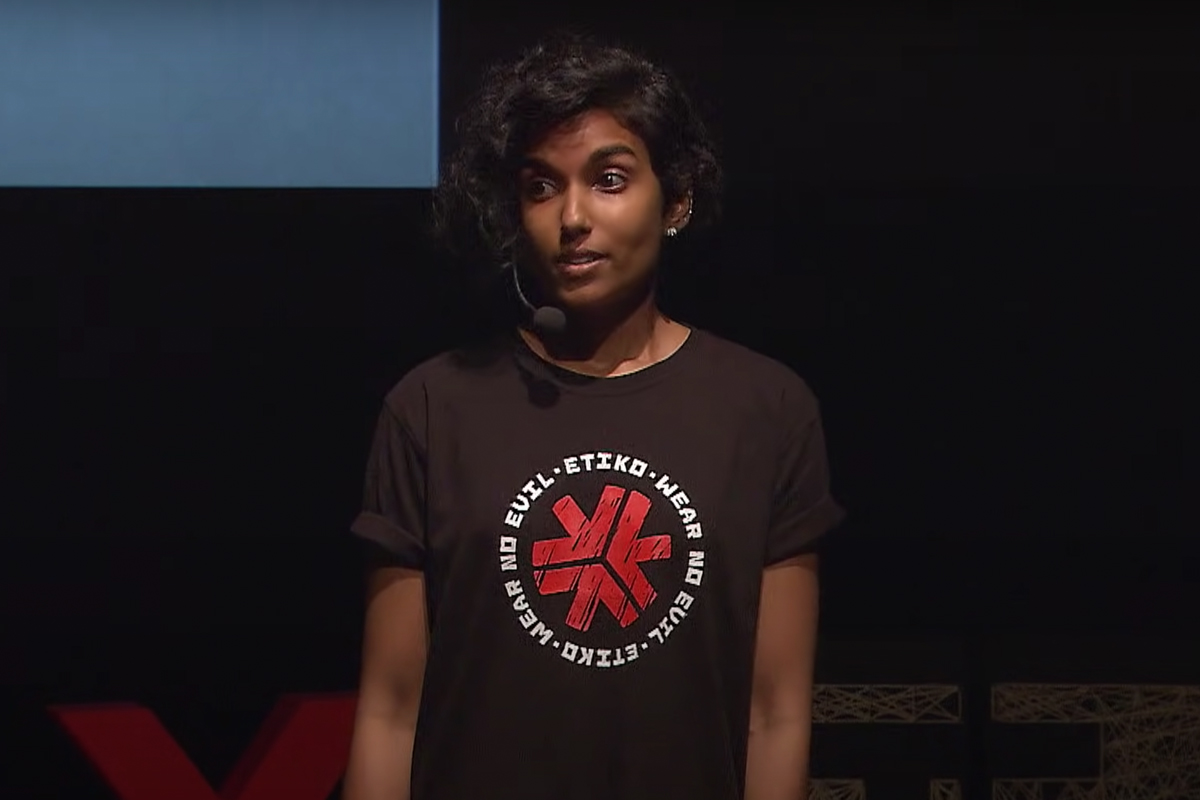
Impact and benefits
Transformational social change takes time to bear fruit. The immediate impact of my work has been one change in a supplier for the University of Tasmania (UTAS), yet the socio-cultural, economic, and environmental benefits of purchasing Fairtrade certified goods will be felt in Australia and overseas for years to come by people and communities who are positively impacted through fair wages, increased food security, access to education, healthcare and safe work. During my internship, I also co-facilitated a vision statement writing workshop. Students from diverse groups around the University were invited to come together to imagine a future where UTAS’ clothing was sustainable. I have received written and spoken feedback from those students in the months following that they did not know slavery and exploitation existed and that through the workshop, they were encouraged by the newly received knowledge to make changes in their contexts. I have used the vision statement to support the case for Fairtrade certified products at UTAS and TUSA.
As an example of extended impact, in 2019 I spoke at the Australian Universities Procurement Network Annual Conference about using university procurement to address modern slavery and exploitation. Attendees rated my presentation highly. However, it was two years later that I heard the procurement head of an Australian University mention they had been convinced to consider slavery and exploitation in their procurement as a direct result of my talk. Further, as a direct result of my advocacy work, James Cook University developed a Social Procurement Framework which guides the University’s compliance with the Australian Modern Slavery Act and reinforces ethical procurement at the University. They did not have any explicit social principles for procurement prior to my advocacy.
My TEDx talk has now been watched over 56,000 times around the world. Individuals have told me that my talk helped them understand how their clothes are made and encouraged them to be more mindful about what they purchase. I am confident that there are others I do not know who have changed their purchasing habits as well. I have received similar feedback after presenting at other industry, school, university, and community events.
In 2022, empowered by what I was learning thorugh the Diploma of Sustainable Living at UTAS and equipped with a more holistic framework, I co-founded the Freedom Polos Project (FPP), which assists Tasmanian schools in procuring Fairtrade certified school uniforms to reduce the occurrence of child labour and exploitation in school uniform manufacturing. After consistent advocacy, the Freedom Polos Project was able to partner with Illawarra Primary school in Tasmania, whose council recently voted unanimously to swap their polyester polo shirt uniforms to Fairtrade certified, organic cotton from the Fairtrade supplier RREPP. This means that all workers are paid a living wage, ensuring reduced poverty in cotton growing and garment manufacturing communities, alongside the prioritisation of schooling for children, food security, healthcare, education in organic farming techniques and gender equality. This action will have significant short-term and long-term impacts in Tasmania and other parts of the world. FPP is now endorsed by Education for Sustainability Tasmania, a United Nations recognised Regional Centre of Expertise on Education for Sustainable Development and is currently in the planning stages of partnering with other schools in Tasmania.
Alongside my studies, I actively take up opportunities to further this work. I participated in the creation of the Red Cross Worker Rights Hub (Australia), which aims to help vulnerable workers from migrant, refugee, and asylum seeker backgrounds to recognise the signs of exploitation and to seek help when impacted. I am on the Board of Citizen Tasmania, an organisation that works alongside migrant, refugee and asylum-seeker communities to tackle human rights challenges faced in their communities, including discrimination, labour exploitation and lack of access to meaningful work. I have also been fostering partnering relationships between Tasmanian businesses and ethical suppliers to help businesses reduce the risk of contributing to slavery and exploitation and provide an opportunity for them to invest in disadvantaged communities.
As a tutor for two subjects in the Diploma of Sustainable Living (DSL) at UTAS, I can bring a social justice lens to the students’ understanding of sustainability by reminding them about the social aspect of sustainability and the UN Sustainable Development Goals (SDGs) when they are exploring solutions to sustainability problems. Similarly, my work with Citizen Tasmania and First Hike Project is informed by the SDGs, which shows that sustainable cities and communities (SDG11) and decent work and economic growth (SDG8) are dependent upon tackling poverty and hunger, enabling good health and well-being and quality education.
I believe that with a shift of priorities, business can be a force for good, transforming communities and contributing to a more environmentally, socially, and economically sustainable world. A world where poverty, environmental crises, slavery and exploitation of people are not accepted as a necessary evil on the journey to a better life – a mere ‘externality’, but rather something that is created by power imbalances and unfair trade, which means it can be stopped and reversed. This can be done by educating individuals and businesses about the existence and impact of slavery and exploitation and encouraging them to exercise respect, compassion and justice when making purchasing decisions by re-building that human connection that the global supply chains have broken and made invisible. Most of my work happens behind the scenes and is therefore underappreciated. Even though I do not do it for this reason, I have come to realise that a lack of immediate financial productivity in my work means it is frequently undervalued and this has a compounding effect which makes future work more difficult.
Leadership and engagement
My message is centred around the core belief that all people should have the right to choose the life that they consider flourishing. I believe that people generally do not intend to harm other people as they live their lives, but that a short-term, profit-oriented, unsustainable way of conducting business means that consumers are separated from how the goods and services that bring enjoyment and convenience to their lives are produced. This means that the people who produce these goods and services are more at risk of being harmed because of the invisibility of global supply chains. Living one’s life should not harm others, and we should all have the freedom to meet our basic needs equally, without being pitted against one another. My advocacy is leadership, fairness and compassion; I have challenging conversations about the equality of all people, fair work, fair trade, anti-discrimination and racism.
My actions are distinctive because I do not focus on the penalty/compliance side of the solution (while this is important), but instead on rebuilding the people-to-people connections that have been broken. This is important because once people see the human being on the other side of the equation and recognise that their actions can impact others, they can respond with respect and compassion. This I believe can produce a truly long-term solution to ending the exploitation of people, especially children. A human-focused problem requires a human-focused solution.
My message uses economic theory, sustainability and SDGs, marketing, philosophy, and justice to change people’s hearts. Rather than create pre-recorded videos or written material that can be impersonal and detached, I work hard to deliver a face-to-face message that is contextualised to the audience. This gives people the opportunity to ask questions and relate to each other, and I can broach controversial topics such as racism and power imbalances in business with sensitivity.
My actions are shaped by my lived experience, and the experience of the various minority groups that I work with via English language classes, First Hike Project and Citizen Tasmania. It is required of me to remain vulnerable and put myself in conversations that can be emotionally and mentally exhausting as I am not speaking about a theoretical and distant issue.
I have structured my life over the last eight years to allow sufficient time for learning, speaking to experts and the community, and thinking about effective solutions. This is an enormous time investment which has meant I have had to work part-time instead of full-time. I have volunteered many hours, studied part-time and paid out of my own pocket to attend seminars and training sessions. I have also looked beyond the supply chain, by running groups such as FPP or teaching English language to adults from migrant, refugee, and asylum seeker backgrounds. This is beginning to change as I was awarded funding from Fairtrade ANZ and 2A4 Grants to attend the Fair Trade International Symposium in Leeds this year.
Choosing to advocate for a just and sustainable future has put me behind my peers in my career and I hope one day that fighting for a better world won’t have to come at such a high cost. I have experienced first-hand that education is instrumental to empower people to use their passion and knowledge to contribute to change, so I now tutor at UTAS for two courses in the DSL. I bring my lived experience of being a migrant and living cross-culturally, my knowledge of business and human rights, ethical consumption and production, sustainability and flourishing to my students and always encourage them to make a difference in their own contexts.
Wider societal impact
The work I began as a young child will continue as a life-long journey, with the potential to change as I continue to learn more. The impacts of my advocacy cannot be measured precisely right now, but I know I am sowing the seeds for change in people’s hearts and minds. These conversations will help people to support incoming policy and legislation and be able to step outside the framework of unsustainable consumerism and growth. Perhaps someone coming after me will be able to see the change more clearly and will be able to have more tangible outcomes.
I challenge people to not accept things the way they are, encourage them not to distance and detach. Bringing the human side to the narratives of national identity, economic growth and migration means I challenge the false yet prevalent narrative that helping others means we are depriving and harming ourselves. By bringing a justice lens to the issue, my message challenges those who think that doing the right think is charity as opposed to duty.
I am completing the Diploma of Sustainable Living and will shortly commence a Masters program which will add moral, ethical and philosophical elements to my practice and understanding, on top of business, economics and sustainability..
In the future, I would like to use my experience, education and connections to speak to businesses, schools and universities to help people to meaningfully connect what their work and study to contributing to a flourishing world. This could be continuing to work towards ending slavery and exploitation or making sure vulnerable people such as those from migrant, refugee or asylum seeker backgrounds are not exploited in their new countries and are empowered to self-actualise, all with the goal of a more just, inclusive, safe and sustainable future for all. Most recently, I have taken my work at the University of Tasmania to an international audience, presenting my project at the Fairtrade International Symposium in Leeds, UK (June 19-21).
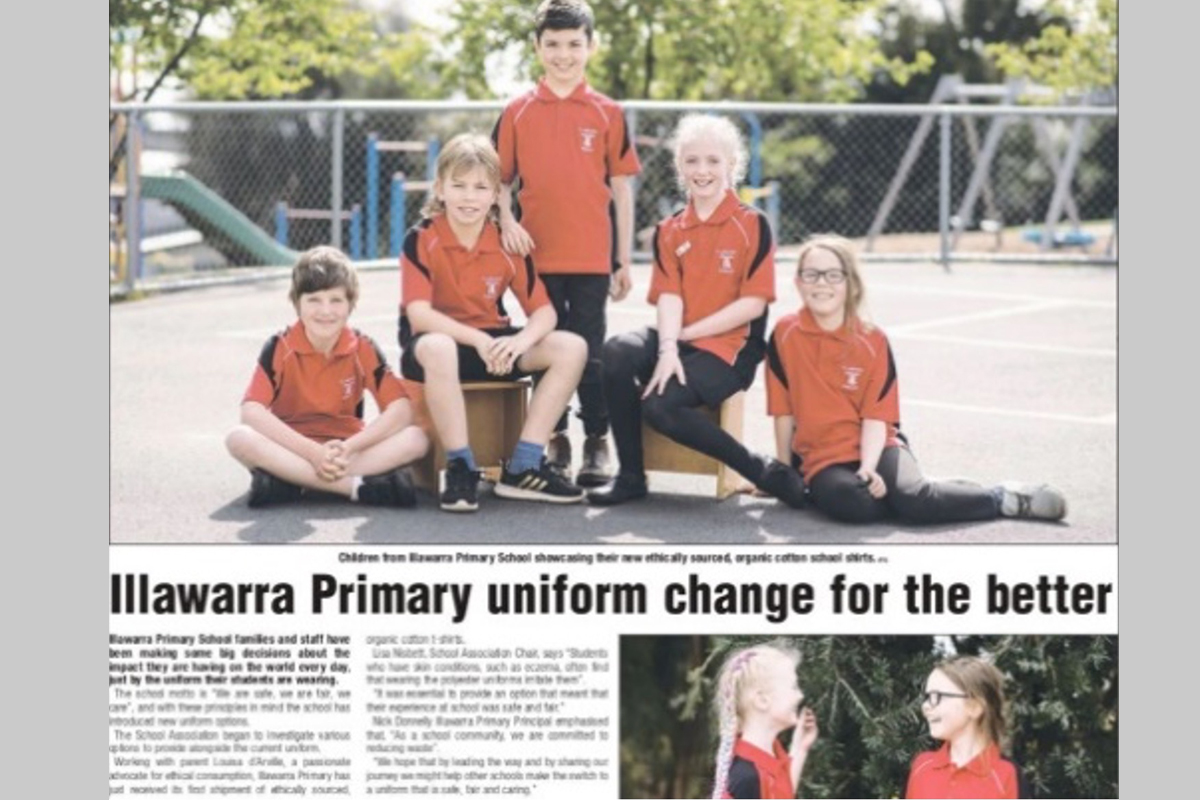
Related finalists
Climate Action/Winners
Climate Action/Winners
Benefitting Society/Winners
Benefitting Society/Winners
Sustainability Champion – Student/Winners
Sustainability Champion – Student/Winners
Creating Impact/Winners
Creating Impact/Winners
Creating Impact/Winners
Creating Impact/Winners
Leading the Circular Economy/Winners
Leading the Circular Economy/Winners
Creating Impact/Winners
Creating Impact/Winners
Sustainability Champion – Student
Sustainability Champion – Student
Diversity, Equity & Inclusion in Sustainability/Winners
Diversity, Equity & Inclusion in Sustainability/Winners
Next Generation Learning & Skills/Winners
Next Generation Learning & Skills/Winners
Sustainability Champion – Student
Sustainability Champion – Student
Sustainability Institution of the Year/Winners
Sustainability Institution of the Year/Winners
Leading the Circular Economy/Winners
Leading the Circular Economy/Winners
Sustainability Champion – Student/Winners
Sustainability Champion – Student/Winners
Sustainability Champion – Staff/Winners
Sustainability Champion – Staff/Winners
Next Generation Learning & Skills/Winners
Next Generation Learning & Skills/Winners
Next Generation Learning & Skills/Winners
Next Generation Learning & Skills/Winners
Sustainability Champion – Student
Sustainability Champion – Student
Sustainability Champion – Staff/Winners
Sustainability Champion – Staff/Winners
Sustainability Champion – Staff/Winners
Sustainability Champion – Staff/Winners
Student Engagement/Winners
Student Engagement/Winners
Other finalists
Climate Action
Climate Action
Sustainability Champion – Staff/Winners
Sustainability Champion – Staff/Winners
Student Engagement
Student Engagement
Creating Impact
Creating Impact
Sustainability Champion – Staff/Winners
Sustainability Champion – Staff/Winners
Sustainability Champion – Student
Sustainability Champion – Student
I grew up in a society where systemic economic, political, and social inequalities and subsequent poverty and suffering were commonplace. As a young child I wondered why did suffering exist? And why did some people suffer so much more than others? One day when I was five years old, I was walking past a building site and saw a young girl around my age carrying bricks on her head. This was not an unusual sight for me, but that day the stark disparity between us hit me. Our lives were so different. Why didn’t she go to school? Where did she sleep at night? What did she do for fun? That day I began a journey that still continues today, to understand why suffering exists, and why it is so difficult to eliminate poverty and injustice Experiences such as this, combined with my study, work and advocacy have contributed to the core belief that neither societal advancement, nor one’s enjoyment of life should come at the expense of any other person’s safety or wellbeing.
At sixteen, I uprooted my life in South Asia and moved to Australia. Over the next few years, I worked multiple jobs while balancing study, culture shock and isolation. I quickly realised how people saw me, a ‘migrant from an underdeveloped country’, regardless of my education, potential or capacity. I experienced exclusion, racism, discrimination, exploitation, and underpayment of wages. The fear of impacting my visa and consequently impacting my future prevented me from seeking help, affecting my mental and physical health. I noticed this was a common experience in migrant, refugee and asylum seeker communities. These experiences shaped my overarching goal – to contribute to a world where all people have the freedom to live and flourishing lives. By bringing visibility to those who have been made invisible by global supply chains, I aim to bring human connection back into the framework of business and development, helping to address inequality and injustice.
In 2015, I finally had the opportunity to study a Bachelor of Business (Economics) at James Cook University (JCU). This degree helped me to understand the systemic context behind inequality and injustice, and to design more effective solutions. During my studies, I volunteered to run an English language class for adults from migrant, refugee, and asylum seeker backgrounds. I was part of a group that started First Hike Project in Brisbane, an organisation that takes young people from these communities on hiking and camping trips to help them connect with nature in their new home. During my Bachelors, partnering with JCU Sustainability, I created a project outside the typical scope of my degree to challenge university procurement to address the slavery and exploitation of people in their supply chains. This project made a case for ethical procurement at JCU and initiated the creation of a Social Procurement Framework, still used today. For this, I was awarded the James Cook’s Student Sustainability award. My resulting 2016 TEDx talk on ethical clothing aimed to educate a broader audience about slavery and exploitation, and bring visibility to the people being exploited , has been watched over 56,000 times globally.
In 2021, I began studying the Diploma of Sustainable Living (DSL) at the University of Tasmania (UTAS). I found that my Business/Economics degree did not provide sufficient explanation on the issue of slavery and exploitation, which exists at the intersection of many other issues – poverty, climate injustice, migration, gender inequality, growth and development, discrimination, colonialism, unequal distribution of wages and the division of labour. The DSL provided an opportunity to understand the issue through a more holistic sustainability lens. At UTAS, through a Sustainability Integration Program for Students (SIPS) internship and fellowship, I have been undertaking a project that identifies the modern slavery risk in the University’s clothing & apparel supply chain and evaluates the effectiveness of Fairtrade certification to reduce this risk and contribute to other sustainability goals such as gender equity, biodiversity protection, reduced chemical run-off into waterways, health and wellbeing of farmers. I presented the project findings to the University Marketing, Procurement and Sustainability teams, the Students for Sustainability working group (which reports to the Sustainability Committee), academic staff and the student union (TUSA). This report and presentation has led the University to ask their supplier to stock Fairtrade certified products. This is an important milestone as it means Fairtrade products are now available to all the clients in Tasmania who use this supplier, reaching beyond the University’s own procurement. TUSA has now changed suppliers for their tote bags, their annual order of around 7000 tote bags are now all Fairtrade certified.
What I do is not just about a theoretical better world; my message is informed by lived experience. My work exists at the intersection of many areas, including policy, consumerism, behavioural economics, marketing, philosophy, education, national identity, human rights, environmental justice, health, and wellbeing. This requires me to draw from a diverse range of knowledge, skills, and experiences. I have demonstrated commitment to this issue over many years, as outlined above, which has come at a personal cost. Working to eliminate the slavery and exploitation of people has required me to demonstrate courage and vulnerability due to the complex and emotionally taxing nature of the issue.

Impact and benefits
Transformational social change takes time to bear fruit. The immediate impact of my work has been one change in a supplier for the University of Tasmania (UTAS), yet the socio-cultural, economic, and environmental benefits of purchasing Fairtrade certified goods will be felt in Australia and overseas for years to come by people and communities who are positively impacted through fair wages, increased food security, access to education, healthcare and safe work. During my internship, I also co-facilitated a vision statement writing workshop. Students from diverse groups around the University were invited to come together to imagine a future where UTAS’ clothing was sustainable. I have received written and spoken feedback from those students in the months following that they did not know slavery and exploitation existed and that through the workshop, they were encouraged by the newly received knowledge to make changes in their contexts. I have used the vision statement to support the case for Fairtrade certified products at UTAS and TUSA.
As an example of extended impact, in 2019 I spoke at the Australian Universities Procurement Network Annual Conference about using university procurement to address modern slavery and exploitation. Attendees rated my presentation highly. However, it was two years later that I heard the procurement head of an Australian University mention they had been convinced to consider slavery and exploitation in their procurement as a direct result of my talk. Further, as a direct result of my advocacy work, James Cook University developed a Social Procurement Framework which guides the University’s compliance with the Australian Modern Slavery Act and reinforces ethical procurement at the University. They did not have any explicit social principles for procurement prior to my advocacy.
My TEDx talk has now been watched over 56,000 times around the world. Individuals have told me that my talk helped them understand how their clothes are made and encouraged them to be more mindful about what they purchase. I am confident that there are others I do not know who have changed their purchasing habits as well. I have received similar feedback after presenting at other industry, school, university, and community events.
In 2022, empowered by what I was learning thorugh the Diploma of Sustainable Living at UTAS and equipped with a more holistic framework, I co-founded the Freedom Polos Project (FPP), which assists Tasmanian schools in procuring Fairtrade certified school uniforms to reduce the occurrence of child labour and exploitation in school uniform manufacturing. After consistent advocacy, the Freedom Polos Project was able to partner with Illawarra Primary school in Tasmania, whose council recently voted unanimously to swap their polyester polo shirt uniforms to Fairtrade certified, organic cotton from the Fairtrade supplier RREPP. This means that all workers are paid a living wage, ensuring reduced poverty in cotton growing and garment manufacturing communities, alongside the prioritisation of schooling for children, food security, healthcare, education in organic farming techniques and gender equality. This action will have significant short-term and long-term impacts in Tasmania and other parts of the world. FPP is now endorsed by Education for Sustainability Tasmania, a United Nations recognised Regional Centre of Expertise on Education for Sustainable Development and is currently in the planning stages of partnering with other schools in Tasmania.
Alongside my studies, I actively take up opportunities to further this work. I participated in the creation of the Red Cross Worker Rights Hub (Australia), which aims to help vulnerable workers from migrant, refugee, and asylum seeker backgrounds to recognise the signs of exploitation and to seek help when impacted. I am on the Board of Citizen Tasmania, an organisation that works alongside migrant, refugee and asylum-seeker communities to tackle human rights challenges faced in their communities, including discrimination, labour exploitation and lack of access to meaningful work. I have also been fostering partnering relationships between Tasmanian businesses and ethical suppliers to help businesses reduce the risk of contributing to slavery and exploitation and provide an opportunity for them to invest in disadvantaged communities.
As a tutor for two subjects in the Diploma of Sustainable Living (DSL) at UTAS, I can bring a social justice lens to the students’ understanding of sustainability by reminding them about the social aspect of sustainability and the UN Sustainable Development Goals (SDGs) when they are exploring solutions to sustainability problems. Similarly, my work with Citizen Tasmania and First Hike Project is informed by the SDGs, which shows that sustainable cities and communities (SDG11) and decent work and economic growth (SDG8) are dependent upon tackling poverty and hunger, enabling good health and well-being and quality education.
I believe that with a shift of priorities, business can be a force for good, transforming communities and contributing to a more environmentally, socially, and economically sustainable world. A world where poverty, environmental crises, slavery and exploitation of people are not accepted as a necessary evil on the journey to a better life – a mere ‘externality’, but rather something that is created by power imbalances and unfair trade, which means it can be stopped and reversed. This can be done by educating individuals and businesses about the existence and impact of slavery and exploitation and encouraging them to exercise respect, compassion and justice when making purchasing decisions by re-building that human connection that the global supply chains have broken and made invisible. Most of my work happens behind the scenes and is therefore underappreciated. Even though I do not do it for this reason, I have come to realise that a lack of immediate financial productivity in my work means it is frequently undervalued and this has a compounding effect which makes future work more difficult.
Leadership and engagement
My message is centred around the core belief that all people should have the right to choose the life that they consider flourishing. I believe that people generally do not intend to harm other people as they live their lives, but that a short-term, profit-oriented, unsustainable way of conducting business means that consumers are separated from how the goods and services that bring enjoyment and convenience to their lives are produced. This means that the people who produce these goods and services are more at risk of being harmed because of the invisibility of global supply chains. Living one’s life should not harm others, and we should all have the freedom to meet our basic needs equally, without being pitted against one another. My advocacy is leadership, fairness and compassion; I have challenging conversations about the equality of all people, fair work, fair trade, anti-discrimination and racism.
My actions are distinctive because I do not focus on the penalty/compliance side of the solution (while this is important), but instead on rebuilding the people-to-people connections that have been broken. This is important because once people see the human being on the other side of the equation and recognise that their actions can impact others, they can respond with respect and compassion. This I believe can produce a truly long-term solution to ending the exploitation of people, especially children. A human-focused problem requires a human-focused solution.
My message uses economic theory, sustainability and SDGs, marketing, philosophy, and justice to change people’s hearts. Rather than create pre-recorded videos or written material that can be impersonal and detached, I work hard to deliver a face-to-face message that is contextualised to the audience. This gives people the opportunity to ask questions and relate to each other, and I can broach controversial topics such as racism and power imbalances in business with sensitivity.
My actions are shaped by my lived experience, and the experience of the various minority groups that I work with via English language classes, First Hike Project and Citizen Tasmania. It is required of me to remain vulnerable and put myself in conversations that can be emotionally and mentally exhausting as I am not speaking about a theoretical and distant issue.
I have structured my life over the last eight years to allow sufficient time for learning, speaking to experts and the community, and thinking about effective solutions. This is an enormous time investment which has meant I have had to work part-time instead of full-time. I have volunteered many hours, studied part-time and paid out of my own pocket to attend seminars and training sessions. I have also looked beyond the supply chain, by running groups such as FPP or teaching English language to adults from migrant, refugee, and asylum seeker backgrounds. This is beginning to change as I was awarded funding from Fairtrade ANZ and 2A4 Grants to attend the Fair Trade International Symposium in Leeds this year.
Choosing to advocate for a just and sustainable future has put me behind my peers in my career and I hope one day that fighting for a better world won’t have to come at such a high cost. I have experienced first-hand that education is instrumental to empower people to use their passion and knowledge to contribute to change, so I now tutor at UTAS for two courses in the DSL. I bring my lived experience of being a migrant and living cross-culturally, my knowledge of business and human rights, ethical consumption and production, sustainability and flourishing to my students and always encourage them to make a difference in their own contexts.
Wider societal impact
The work I began as a young child will continue as a life-long journey, with the potential to change as I continue to learn more. The impacts of my advocacy cannot be measured precisely right now, but I know I am sowing the seeds for change in people’s hearts and minds. These conversations will help people to support incoming policy and legislation and be able to step outside the framework of unsustainable consumerism and growth. Perhaps someone coming after me will be able to see the change more clearly and will be able to have more tangible outcomes.
I challenge people to not accept things the way they are, encourage them not to distance and detach. Bringing the human side to the narratives of national identity, economic growth and migration means I challenge the false yet prevalent narrative that helping others means we are depriving and harming ourselves. By bringing a justice lens to the issue, my message challenges those who think that doing the right think is charity as opposed to duty.
I am completing the Diploma of Sustainable Living and will shortly commence a Masters program which will add moral, ethical and philosophical elements to my practice and understanding, on top of business, economics and sustainability..
In the future, I would like to use my experience, education and connections to speak to businesses, schools and universities to help people to meaningfully connect what their work and study to contributing to a flourishing world. This could be continuing to work towards ending slavery and exploitation or making sure vulnerable people such as those from migrant, refugee or asylum seeker backgrounds are not exploited in their new countries and are empowered to self-actualise, all with the goal of a more just, inclusive, safe and sustainable future for all. Most recently, I have taken my work at the University of Tasmania to an international audience, presenting my project at the Fairtrade International Symposium in Leeds, UK (June 19-21).

Related finalists
Student Engagement/Winners
Student Engagement/Winners
Sustainability Champion – Staff/Winners
Sustainability Champion – Staff/Winners
Sustainability Champion – Staff/Winners
Sustainability Champion – Staff/Winners
Other finalists
Climate Action
Climate Action
Sustainability Champion – Staff/Winners
Sustainability Champion – Staff/Winners
Student Engagement
Student Engagement

